Nicolás Della Penna
Towards Prior-Free Approximately Truthful One-Shot Auction Learning via Differential Privacy
Mar 31, 2021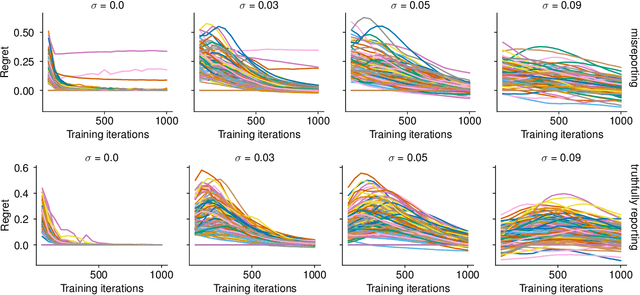


Abstract:Designing truthful, revenue maximizing auctions is a core problem of auction design. Multi-item settings have long been elusive. Recent work (arXiv:1706.03459) introduces effective deep learning techniques to find such auctions for the prior-dependent setting, in which distributions about bidder preferences are known. One remaining problem is to obtain priors in a way that excludes the possibility of manipulating the resulting auctions. Using techniques from differential privacy for the construction of approximately truthful mechanisms, we modify the RegretNet approach to be applicable to the prior-free setting. In this more general setting, no distributional information is assumed, but we trade this property for worse performance. We present preliminary empirical results and qualitative analysis for this work in progress.
Human collective intelligence as distributed Bayesian inference
Aug 05, 2016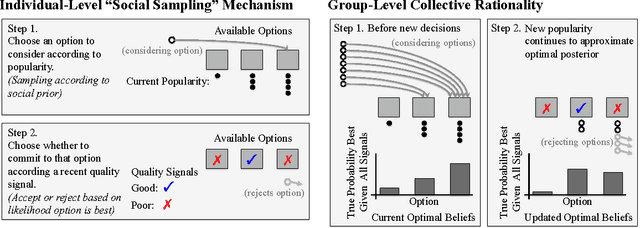
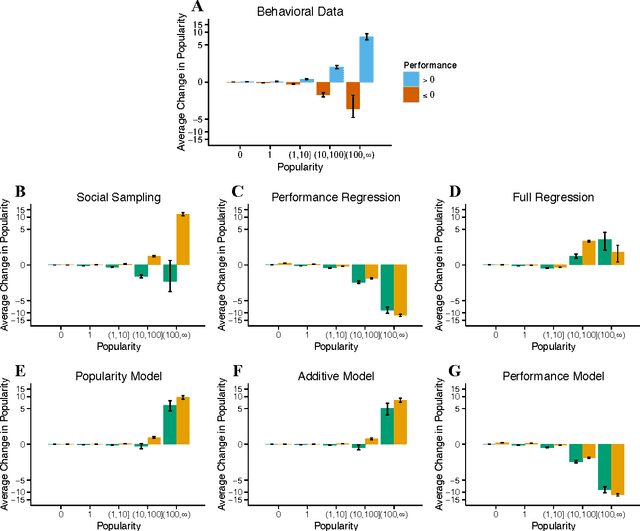
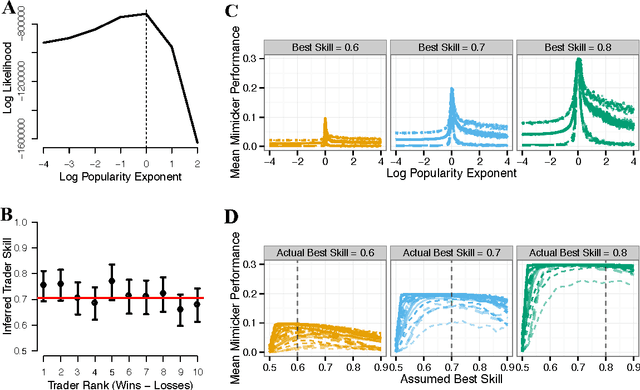
Abstract:Collective intelligence is believed to underly the remarkable success of human society. The formation of accurate shared beliefs is one of the key components of human collective intelligence. How are accurate shared beliefs formed in groups of fallible individuals? Answering this question requires a multiscale analysis. We must understand both the individual decision mechanisms people use, and the properties and dynamics of those mechanisms in the aggregate. As of yet, mathematical tools for such an approach have been lacking. To address this gap, we introduce a new analytical framework: We propose that groups arrive at accurate shared beliefs via distributed Bayesian inference. Distributed inference occurs through information processing at the individual level, and yields rational belief formation at the group level. We instantiate this framework in a new model of human social decision-making, which we validate using a dataset we collected of over 50,000 users of an online social trading platform where investors mimic each others' trades using real money in foreign exchange and other asset markets. We find that in this setting people use a decision mechanism in which popularity is treated as a prior distribution for which decisions are best to make. This mechanism is boundedly rational at the individual level, but we prove that in the aggregate implements a type of approximate "Thompson sampling"---a well-known and highly effective single-agent Bayesian machine learning algorithm for sequential decision-making. The perspective of distributed Bayesian inference therefore reveals how collective rationality emerges from the boundedly rational decision mechanisms people use.
Compliance-Aware Bandits
Feb 09, 2016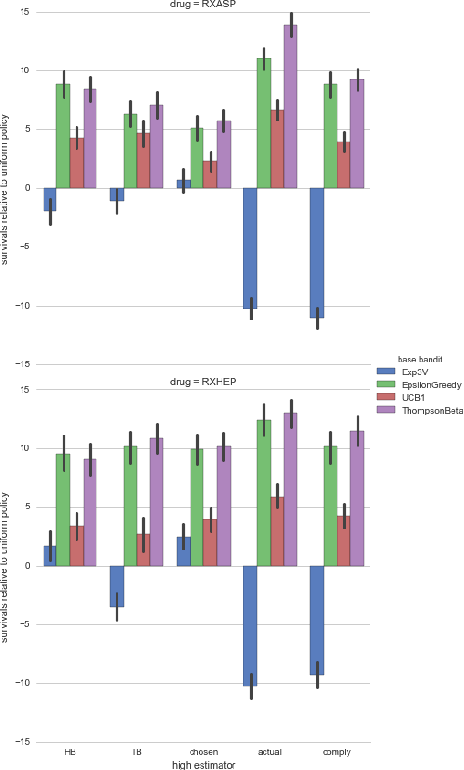
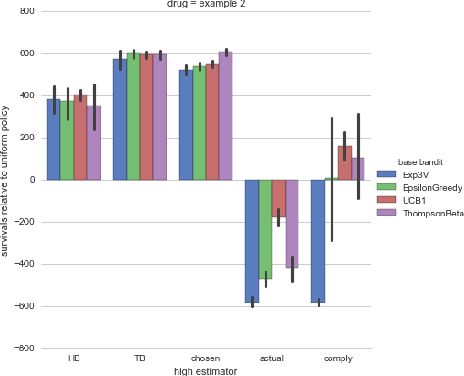
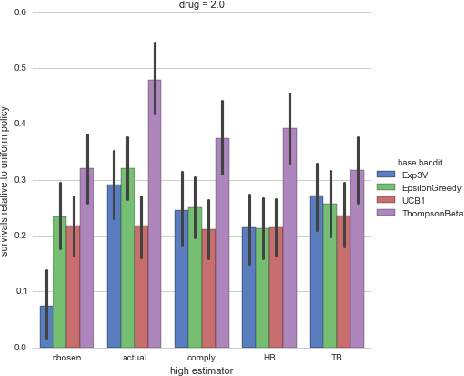
Abstract:Motivated by clinical trials, we study bandits with observable non-compliance. At each step, the learner chooses an arm, after, instead of observing only the reward, it also observes the action that took place. We show that such noncompliance can be helpful or hurtful to the learner in general. Unfortunately, naively incorporating compliance information into bandit algorithms loses guarantees on sublinear regret. We present hybrid algorithms that maintain regret bounds up to a multiplicative factor and can incorporate compliance information. Simulations based on real data from the International Stoke Trial show the practical potential of these algorithms.
 Add to Chrome
Add to Chrome Add to Firefox
Add to Firefox Add to Edge
Add to Edge